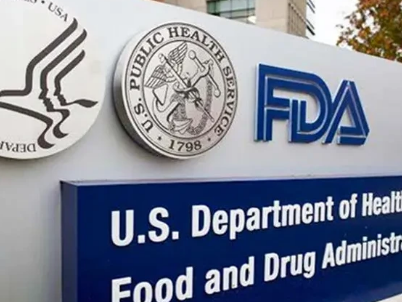New Peptide Rules
Congress subtly changed the definition of a 'biological product' to give Big Pharma control of the sale of proteins to treat disease. As usual such maneuvers leave loopholes within the loopholes...
"The FDA had previously stated its interpretation of the statutory terms “protein” and “chemically synthesized polypeptide” in the amended statutory definition of “biological product.” The FDA interprets the term “protein” to mean any alpha amino acid polymer with a specific defined sequence that is greater than 40 amino acids in size. Alternatively, the FDA previously interpreted the term “chemically synthesized polypeptide” to mean any alpha amino acid polymer that is made entirely by chemical synthesis and is greater than 40 amino acids, but less than 100 amino acids in size.
A “chemically synthesized polypeptide” was not a “biological product” and was not going to be regulated as a drug under the FD&C Act unless the polypeptide otherwise met the statutory definition of a “biological product.” This definition was scientifically appropriate, but at the last minute, the latest appropriations bill (enacted in December of 2019) further amended the definition of “biological product” to remove “(except any chemically synthesized polypeptide).” Now, in the definition ... there is no differentiation between protein and polypeptide." [1]
The new definition is:
"Biological Product – A virus, therapeutic serum, toxin, antitoxin, vaccine, blood, blood component or derivative, allergenic product, protein, or analogous product, or arsphenamine or derivative of arsphenamine (or any other trivalent organic arsenic compound), applicable to the prevention, treatment, or cure of a disease or condition of human beings." [2]
Note that the parenthetical “(except any chemically synthesized polypeptide)” has been removed.
FDA further states:
"Under this final rule, the term protein means any alpha amino acid polymer with a specific, defined sequence that is greater than 40 amino acids in size. This final rule is intended to clarify the statutory framework under which such products are regulated." [3]
Under the new definition, as interpreted by FDA, any "protein" 40 or less amino acids is still available as a "food" product. Any naturally occurring protein that is not chemically changed appears to still qualify as a food and thus as a Medical Food. Doctors may recommend Medical Foods for the dietary management of health conditions.
--------------
[1] https://bengreenfieldlife.com/article/supplements-articles/peptides-fda/
[2] "This final rule codifies the Food and Drug Administration’s (FDA or Agency) interpretation of the statutory term “protein” that the Agency previously described in guidance (Ref. 1). This final rule does not finalize the FDA’s interpretation of “chemically synthesized polypeptide” because section 605 of the Further Consolidated Appropriations Act, 2020 (Public Law 116-94) (FCA Act) removed the parenthetical “(except any chemically synthesized polypeptide)” from the category of “protein” in the definition of “biological product” in section 351(i) of the Public Health Service Act (PHS Act). F" -- https://www.fda.gov/media/135421/download
[3] https://www.federalregister.gov/documents/2020/02/21/2020-03505/definition-of-the-term-biological-product
